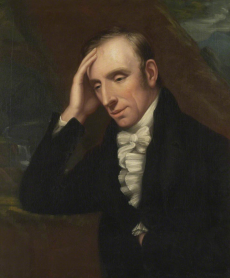
Email: reecejordan98@hotmail.co.uk
Total Article : 168
About Me:18-year-old sixth form student, studying English Literature, History and Government and Politics. My articles will broadly cover topics from the current affairs of politics to reviews of books and albums, as well as adding my own creative pieces, whether it be short fiction or general opinion.

By drawing on such a tradition, Wordsworth has the reader come to expect a revelation to the questions posed in the seventh stanza: ‘why sits she beside the Thorn / […] And wherefore does she cry?’ (ll.82-88) But, we are told, ‘the true reason no one knows’ (l. 90). Such refusal to revelation clearly aggravated contemporary readers as Wordsworth, in the 1802 version of the Lyrical Ballads, added a note drawing attention to the speaker of the poem – a ‘Captain of a small trading vessel’ who ‘having little to do become credulous and talkative from indolence’ and are ‘prone to superstition – and how such a character exhibits ‘some of the general laws by which superstition acts upon the mind.’ (199) By altering the frame of the poem from the story to the speaker, it becomes as Stephen Parrish states, ‘not a poem about a woman but a poem about a man (and a tree); not a tale of horror but a psychological study; not a ballad but a dramatic monologue.
Our attention, then, is focused on the way the story is told rather than the story itself, and through this it displays a critique on the oratorical nature of tales, both by how they are told and how they are received. It only becomes clear by the seventh stanza that the poem is actually a conversation, that the story is not only being told to the reader but to another speaker. By withholding this until the seventh stanza, Wordsworth posits the reader in the place of the second speaker, thus making their desperate questions our own, displaying our own investment in the story. But the poem acts as a warning against such investment; it is clear that, too, the sea captain narrator of the poem has fallen for the same traps and he, like us, is no closer to the truth. It is clear that what the sea captain is describing comes from various accounts. His narrative is frequently littered with ‘they say’. Thus, by having the reader in place of a susceptible listener as well as having the story channelled through a word-of-mouth narrative, Wordsworth’s poem is not simply a ballad, but an exposure of our unhealthy need for revelation, and a warning against pitting this against our superstition.
It is clear that within the Lyrical Ballads not all is at it seems. Even their preface and advertisement, which state that the poems within the collection are ‘experiments’ is seemingly not enough to induce us to see beyond the superficial elements. But if we are to look deeper, to focus on details and see how the poems manipulate popular forms, then the poems are not only infinitely more rewarding, but far more insightful.
Image Credits: artuk.gov

0 Comment:
Be the first one to comment on this article.